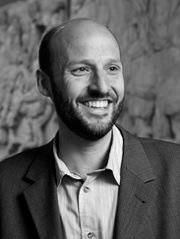Prof. Dr. Peter Adamson

Professor
Ludwig-Maximilians-Universität München
Geschwister-Scholl-Platz 1
80539 München
Peter Adamson's primary areas of interest are late ancient philosophy and Arabic philosophy. His two monographs deal with the Arabic version of Plotinus, the so-called "Theology of Aristotle," and with al-Kindi (d. after 870 AD). He has devoted articles to several figures of the Greek tradition: Aristotle, Plotinus, and Porphyry; and numerous philosophers of the Arabic tradition, including al-Kindi, Abu Bakr al-Razi, Yahya Ibn 'Adi, Miskawayh, Avicenna, and Averroes. He has also edited and co-edited numerous books, including "The Cambridge Companion to Arabic Philosophy," three further volumes on philosophy in the Islamic world for the Warburg Institute, several volumes for the Institute of Classical Studies including "Philosophical Themes in Galen," and "Interpreting Avicenna: Critical Essays" for Cambridge University Press. In 2012 Prof Adamson moved to the LMU from King's College London. He is also the host of the History of Philosophy podcast (www.historyofphilosophy.net).
Necessity and Freedom in Philosophy of the Islamic World
One of the central philosophical debates in the Islamic world concerned the concepts of necessity and possibility. Two particularly controversial, and interrelated, issues were God's necessity and the capacity of human agents to act freely. Regarding the first, a dominant philosophical conception of God (associated especially with Avicenna) made Him a "necessary existent" who cannot fail to exist, and cannot fail to create the universe. Against this, al-Ghazali and others insisted that God must be a freely acting agent, even if He does exist necessarily. Then there was the further question of whether humans are genuinely free agents: are their actions constrained by God, because all things proceed from Him necessarily, or because God decides freely what will occur instead of us, or even because God knows in advance what we will do, which makes our actions necessary? In this course we will examine contributions on these issues from both philosophers and theologians, and touch on Jewish and Christian thinkers who worked in the Islamic world. Some of the thinkers to be considered will include al-Ash'ari and his Mu'tazilite opponents; Saadia Gaon; Yahya ibn 'Adi; Avicenna; and al-Ghazali.
Introductory Literature:
P. Adamson, “Freedom and Determinism,” in The Cambridge History of Medieval Philosophy, ed. R. Pasnau, 2 vols (Cambridge: Cambridge University Press, 2010), vol. 1, 399-413.
P. Adamson, “From the Necessary Existent to God,” Interpreting Avicenna: Critical Essays (Cambridge: Cambridge University Press, 2013), 170-89.
C. Belo, Chance and determinism in Avicenna and Averroës (Leiden: Brill, 2007)
Al-Ghazālī, The Incoherence of the Philosophers, translated by M.E. Marmura (Provo: 1997), especially the opening sections on the eternity of the world.